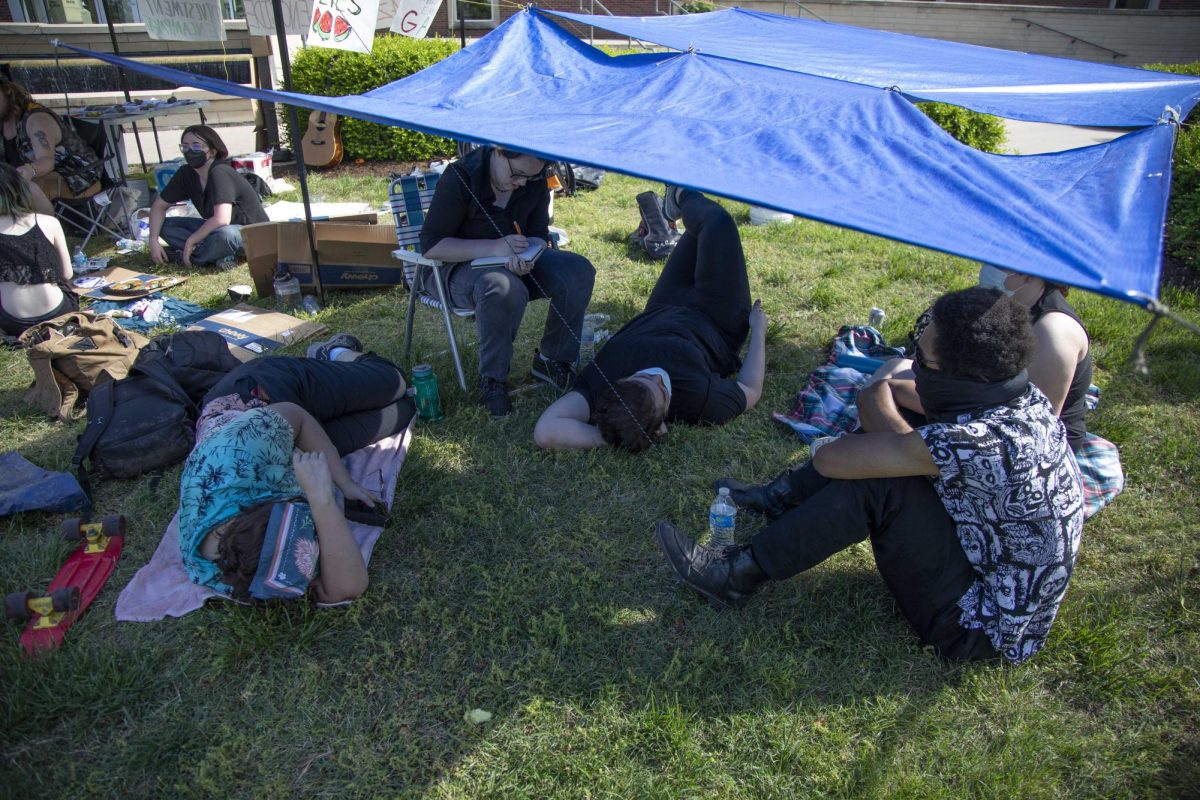Simon poll reflects angry voters; Internet regulation bill back from dead

October 24, 2013
Simon Institute poll shows southern Illinois voters angry over country’s direction
The Paul Simon Public Policy Institute released a poll Monday showing southern Illinois voters are in a bad mood.
The poll says voters are upset with where the state and nation are heading. Fewer than 15 percent said the nation was going in the right direction, while just 10 percent said the state was on the right path.
Advertisement
However, more than 51 percent of voters surveyed said their city or area was headed in the right direction. John Jackson, SIU professor emeritus and Paul Simon Public Policy Institute staff member, said this was in tune with national findings.
“That’s kind of interesting in southern Illinois terms because we are so heavily dependent on state and federal spending on state and federal institutions like prisons, universities and community colleges,” he said. “If you stop and think about it, we are also heavily dependent on the state and federal government to build infrastructure like highways … Voters seem to not stop and think about the fact that that is the federal or state government hard at work spending a lot of its resources in southern Illinois.”
There were drastic differences between each party’s views. A total of 94 percent of Republicans said the nation was heading in the wrong direction, while just more than 52 percent of Democrats answered the same way.
Jackson said these findings are not surprising since Democrats control state and federal government in Illinois. Republicans are viewing the government with alarm right now, he said.
The poll also questioned voters’ views on their financial situations. Voters overwhelmingly thought that they were in the same financial situation as one year ago and they were unlikely to see any change.
While job growth has been substantial since 2009, there are not enough for each person who wants a job to have one, Jackson said.
“That’s what the national government is up against,” he said. “Creating 150 to 180,000 jobs a month, objectively speaking, is not a bad record at all. But the popular opinion is that hard times are upon us. And southern Illinois tends to magnify that because jobs in this area are somewhat more scarce than they are statewide”
Advertisement*
Gallup: Majority of Americans support marijuana legalization
A new Gallup poll released Tuesday shows a change in America’s view of marijuana legalization.
For the first time since 1969 when the poll was introduced, a majority of Americans support full marijuana legalization. Fifty eight percent of respondents said they supported full legalization, up 10 points from 2012.
Respondents aged 65 and older were the only demographic where the majority did not support reform with 45 percent in favor of legalization. However, they did jump 14 percentage points since 2011.
Blaise Sewell, an activist for the National Organization for the Reform of Marijuana Laws from Belleville, said the results were positive for marijuana reform supporters.
“The numbers show that we are winning and our message is true and that after decades of misinformation, the truth is reaching average American families,” he said.
Sewell said the nation may have six states with legalization measures on the ballot or already passed by 2016.
“In terms of legalization and states across the country, these numbers indicate that victory is right around the corner,” he said.
Sewell said the shift in attitude might make legalization a wedge issue in the 2016 presidential election. He said Illinois could be one of the first states in the Midwest to pass legalization.
“On the issue of medical marijuana and pro-legalization, (Illinois has) definitely been a follower instead of a leader,” he said. “However that can all change should the citizens start to make their voices heard to their legislators. All it takes is a phone call, an email, a letter to the editor to start getting the conversation started in our communities.”
Sewell also said that recreational use was not the only issue at hand with legalization.
“I feel like the word ‘recreational’ has kind of taken over the conversation more than it should,” he said. “The movement has turned towards white guys that want to use marijuana recreationally, where I feel the issue should be the large prison population and the persons of color that can’t have a voice in this conversation. We need to remember while moving forward that this isn’t just about recreational use, this is about the legalization for all users, including those who have been in jail for it.”
The Illinois Department of Corrections currently reports holding 729 inmates with cannabis related holding offenses at a cost of more than $21 million per year.
CISPA back from the dead
The Cyber Intelligence Sharing and Protection Act, the controversial Internet regulation bill more commonly known as CISPA, is likely to be reintroduced to Congress.
Democratic Sen. Dianne Feinstein of California and Republican Sen. Saxby Chambliss of Georgia are co-authoring the bill, which has been defeated twice since 2011.
Early drafts of the bill would allow private companies to give information, either anonymous or identified, to government agencies like the National Security Agency. This has drawn ire among critics of the bill in the midst of other privacy concerns.
The revelations by Edward Snowden regarding the NSA’s PRISM program are likely to be a barrier to the passage of the bill. However, Michelle Richardson, legislative counsel for the American Civil Liberties Union, warned of backdoor deals in Congress in an interview with Mother Jones Magazine.
“It would have been complicated to pass a bill before the leak and now it’s even harder,” Richardson said in the interview. “That being said, I think we need to keep a very careful eye on it to make sure a deal isn’t struck in the Senate. Sometimes these things suddenly start moving.”
Advertisement







